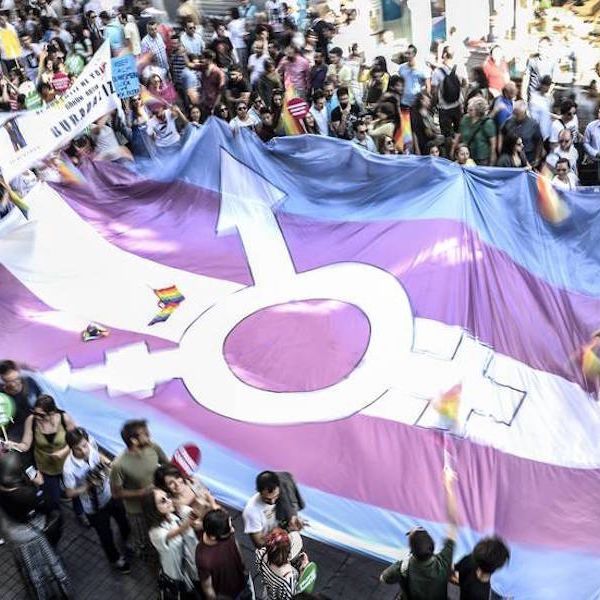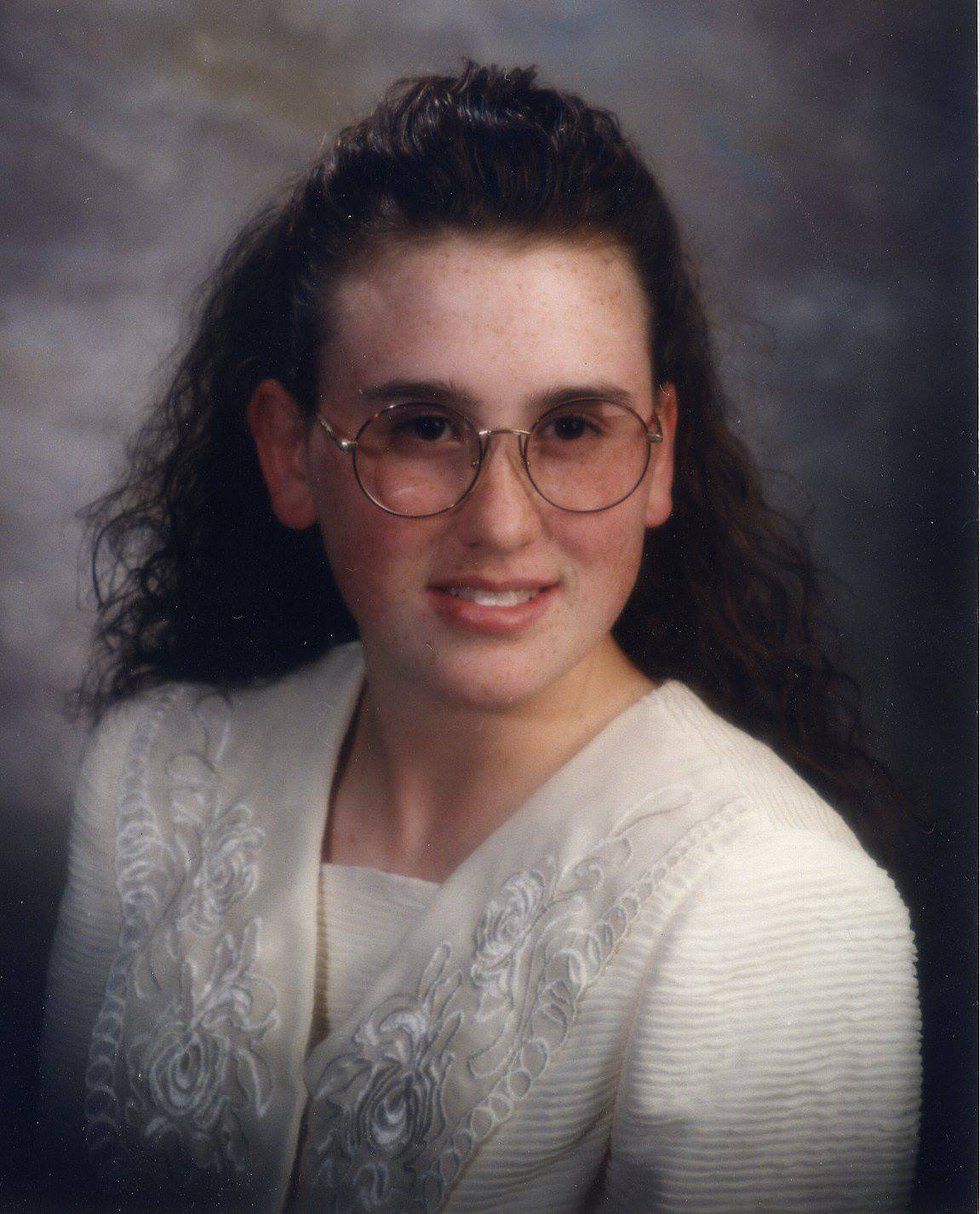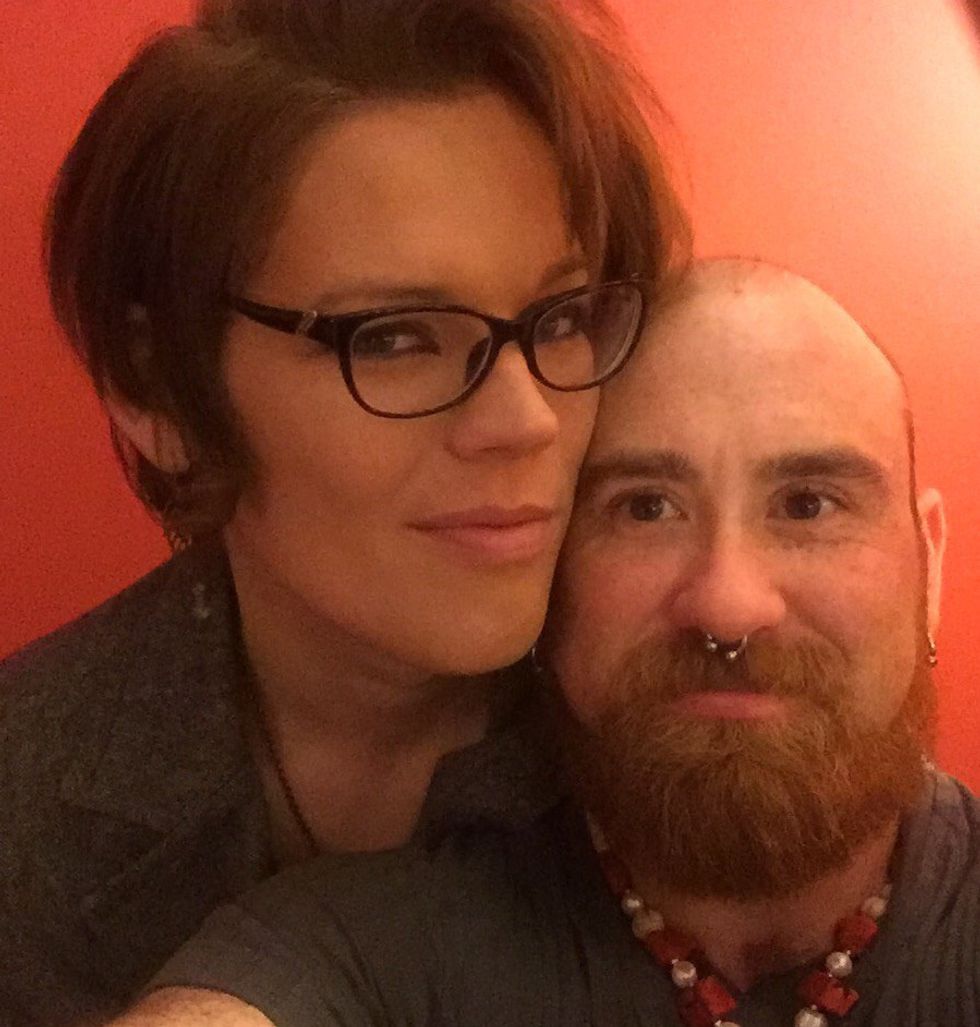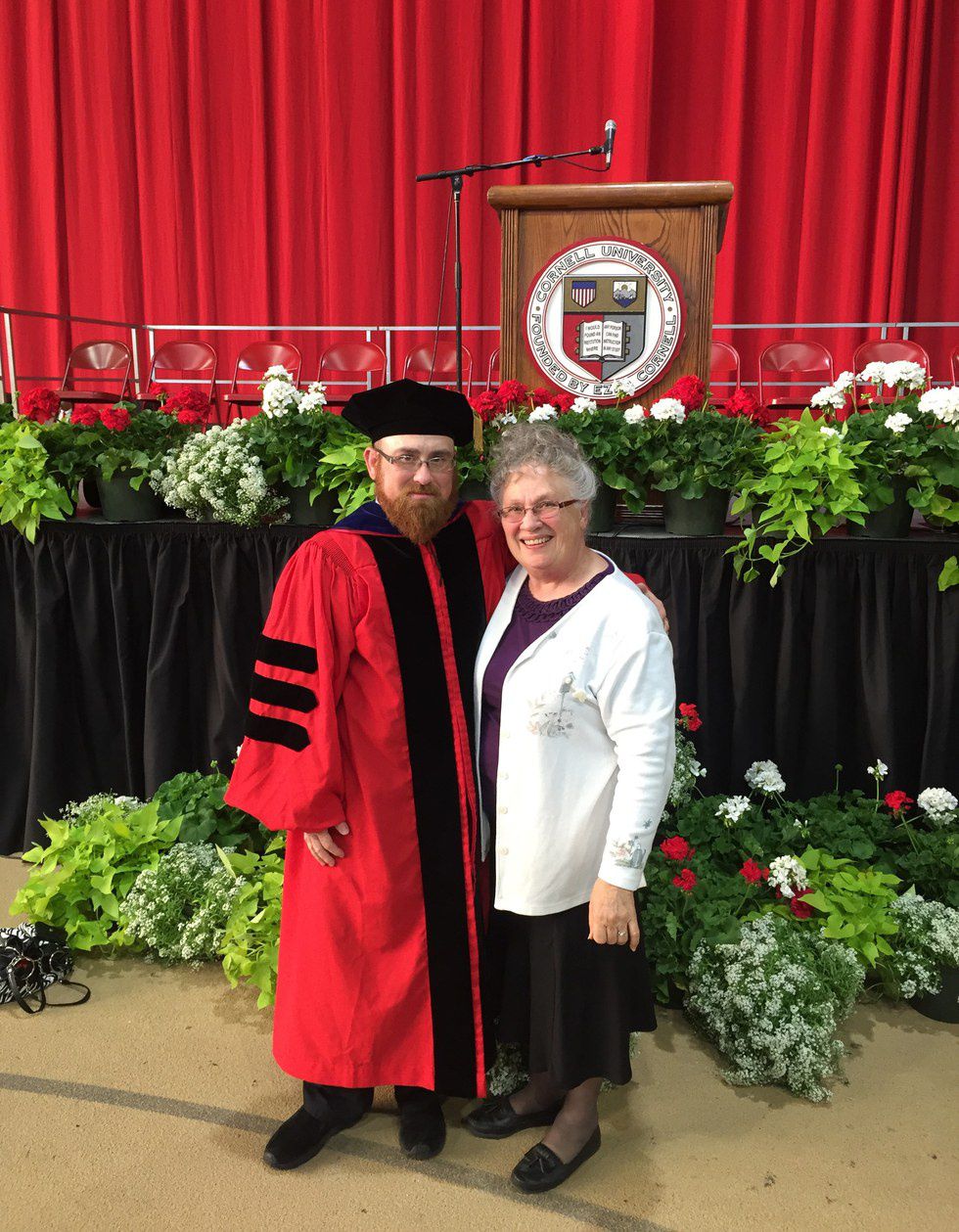Leo Taylor is a Biology professor at Ithaca College. He has his Bachelor’s degree in Psychology and his masters in Biology from Ballstate University, and his Ph.D. in Entomology from Cornell University.
He sounds like a typical professor and seems like a typical Ithacan. He’s open-minded and he cares about the environment. He has a red goatee and a nose ring. But there’s something not so typical about Leo.
He is also a trans man.
Leo Taylor was born in Muncy, Indiana to a very religious Pentecostal family. He thought he was a boy when he was a kid. He was envious of his high school boyfriend’s goatee. He tried bodybuilding in college to gain muscle and become manlier but stopped when he felt like working out only made his body more feminine. He knew that he wasn’t like other girls, but when he was younger there was no name for transgender people, no information on the subject. A lot of trans people think that their dysphoria is a product of same-sex attraction, and Leo did live as a Lesbian for eight years; though he never felt like he fit into his female body.
Leo didn’t know that anything could be done about his condition until after college. In 1999, he began his transition from female to male by going on testosterone and getting a bilateral mastectomy. His family wasn’t supportive of these changes because of their religious beliefs, but Leo explained that trans people have to be patient with their friends and family.
“It took my mother about three years to come around to being comfortable with me as her son. And it wasn’t me hounding her on every instance to change, change, change. It was reinforcing gently, kindly, lovingly reinforcing, that this is who I am, and you could have a potentially very unhealthy, potentially dead, daughter, or you can have me, and this version of me is doing pretty good.”
And indeed, Leo had tried to commit suicide at age 15, after which he was hospitalized for five weeks and subsequently came out as a lesbian. Attempted suicide is common among transgender people; 41 percent of trans people attempt suicide at one point in their lives.
Even though he came closer to his identity through coming out as a lesbian, he always had the feeling that he wanted to be a male. Luckily, though, once Leo became aware of his sexuality and decided to transition from a female to a male, he found support in his co-workers and friends. One of his biggest recommendations for trans people is to try to connect with people, not just online, but actually in-person.
“Isolation is the thing that kills people…I always recommend for somebody who’s struggling is to connect with a human being, in person if possible…Having that connection with another human being sitting right in front of you, no matter what the connection is, is more powerful…than any other kind of connection. Youtube, Facebook, Instagram, nothing can approximate that…seek the company of people who you can identify with, who can tell you stories, and who can answer your questions or who can just look at you and say ‘it sucks. But it’s gonna get better.’ And it doesn’t suck so much better these days. I’m hearing so many more positive stories about gender variant people…people are finding acceptance in friends and I’m really happy with the way things are progressing.”
Leo began feeling comfortable in his body for the first time in his life after his transition. But he noticed that the testosterone altered his body and also the way that people viewed him. His wife, too, noticed this difference in her experiences being two different genders—she is a transwoman.
“I gained status--I went from being a white female to a white man. She went from a white man to being a white woman—and lost status instantly…people started listening to me…There’s a very, very strong gender dynamic, and I wasn’t aware of it at all until it happened…in a lot of instances, men just do not listen to women, unless the woman has earned their respect in some way. But being a man, you are automatically afforded that respect.”
Leo and his wife Kristen, along with another transwoman in Ithaca, have organized the Fingerlakes Transgender Community, which meets every other Sunday and serves people who identify as transgender and people who are questioning. The meetings are informal and peer-lead, and during some meetings people can bring their SOFFAs: Significant Others, Friends, Family, Allies.
“I kind of see my work here right now as planting little seeds of awareness that will germinate and grow. And I find that students of this generation are really open to learning about differences and so much more accepting of differences. I think this has to do with also being in the media a lot and this is a good time for trans people to make some permanent systemic changes. There’s a lot of awareness about trans people right now and its gaining momentum. My wife and I are attempting to be a big part of that. We are attempting to open a transgender resource center in Ithaca for the whole Finger Lakes region.”
The transgender resource center would feature cosmetology and self-defense, provide referrals for people who want to contact therapists or doctors, and organize fun social opportunities. The center would also have a closet where people could donate the clothes from their previous gender and take clothes for their new gender. Mostly, though, the center would simply function as a safe space, a hub of information with a phone number that people can call if they want information. Though not in place now, Leo and Kristen have tentative plans to open the center.
Hubs of information like this are something that a lot of trans people never had before. And although acceptance of trans people is increasing, Leo still finds a problem with society’s tendency to try to fit people into labels.
“I think we need to just stop trying to pigeonhole people—and the same goes for outside the LGBT community. Heterosexual people have the same things being done to them…[let] people [be] colorful human beings…without worrying about ‘does this make me gay or not, does this make me trans…’ But labels are helpful. They help us find our place. If I hadn’t been able to label transsexual when I started searching, who knows when I would have found what I was looking for. So they’re useful, but we can get bogged down with them.”
Labels, society’s perceptions, religion—all things that complicate the process of transitioning from one gender to another. But the most important thing for anyone is that he or she feels comfortable with their body and their sexuality.
“You can’t postpone important life decisions because your partner isn’t comfortable with it…do whatever it takes to make sure you’re happy and safe and healthy, and if that means you lose your parents because you decided to take care of yourself, then that’s what you do if that’s the right decision for you.”
Leo explained the positive effects of transitioning from a woman to a man and getting in touch with his sexuality.
“It changed everything when I [transitioned]. I started to feel confident. I started to feel like I could stand up straight. I felt hopeful about life. I started to feel sexy for the first time. Like, actually liking the way my body looked. It’s really really important for people to feel good about the way they look…it colors everything when you feel good about yourself, and you feel good about the way you look. More doors open up for you. Self-care is so important.”
After three years, Leo’s mom came to terms with her daughter transitioning to a male body. They have patched up their relationship, and Leo even introduced her to her second husband.
He is also extremely happy in his relationship with his wife, something that he didn’t have to outright say, but something that I understood by the way he talked about her. “I’m definitely type A personality. She’s type F, type fairy or something. She’s wonderful, she’s teaching me a lot of lessons about life, about being a better human being.”
As Leo said, you have to do what’s best for you. It may take time, patience and understanding from friends and family; it may be extremely hard. But feeling comfortable in your body and with your sexuality is imperative to your health and happiness.
If you or someone you love is transgender, there are resources available, including 24-hour hotlines, support groups, and general awareness or advocacy groups, some of which are listed below:
http://www.glaad.org/transgender/resources
http://community.pflag.org/page.aspx?pid=539
http://www.theguardian.com/lifeandstyle/2012/nov/29/transgender-advice-best-resources-online
http://www.nytimes.com/2015/05/06/opinion/transgender-resources.html?_r=0
























